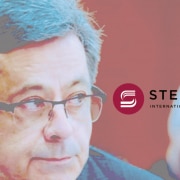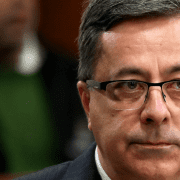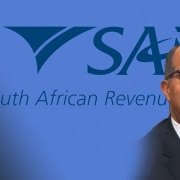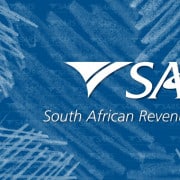|
Getting your Trinity Audio player ready...
|
In late 2017 the Steinhoff scandal broke, sending tremors of anger and outrage around the world, especially in the countries where the South African multinational retail holding company traded or was listed. Accounting irregularities dating back to 2015 were uncovered during an auditing probe triggered by the refusal of Deloitte, Steinhoff’s auditing firm at the time, to sign off on financial statements for 2017.
Within days the company’s share price had fallen by over 90% as information emerged of how it had overstated its assets and profits by nearly $12-billion. Deloitte was eventually fired and replaced.
The scale of the fraud is staggering, the amounts involved hard to imagine. The man said to be at the helm of it all, Markus Jooste, resigned as CEO in December 2017. Almost three years later, Jooste has still not been brought to book, and in a recent BizNews radio interview Sipho Ngwema, spokesperson for the National Prosecuting Authority (NPA), was asked to clarify the delay.
On the NPA’s progress in the Steinhoff matter, Ngwema said it was important to have the auditors on board because they have been working on the matter for the past two years
The transnational nature of the matter, Ngwema explained, makes it even more complicated. Because of the size of the investigation and the involvement of several other countries, the NPA is now directing the forensic investigation to ensure it meets the standards in terms of both a criminal investigation and a criminal prosecution. The investigation is ongoing.
“We have also tried to ensure that we insulate the company so there is no influence, and there are enough safeguards for us to continue with the investigation and to not compromise it if there are other conflicting issues that may arise, given that the company is a complainant.”
It may happen in the future that the company becomes a suspect in the matter, Ngwema added.
There is progress, he said, and the NPA is hoping that it will be able to tie up its investigation and take action against the implicated persons. “Part of the reason for these decisions is that the people implicated have left the company and the shareholders are the complainants, and we are therefore moving together with the Hawks to try to ensure that we finish the investigation and are able to take action.”
Forensic investigator Paul O’Sullivan added another view for the delay, saying that the capture of the justice system has resulted in “criminals running the criminal justice system”.
Speaking to BizNews, O’Sullivan said: “We have an enormous mountain to climb and not enough mountaineers to get on with the job”.
He decried the inequalities in the South African justice system, saying: “you can steal a loaf of bread and get instant justice, but if you steal R100m there is no justice. A poor person can go into Checkers or Pick n Pay, steal a loaf of bread, get arrested immediately, be in court next day, a month later there is a trial and they are found guilty and sentenced”.
Dirty business exposed
In a December 2017 statement, Corruption Watch condemned the Steinhoff skulduggery, and called on the business community to distance itself from the malfeasant conduct of Steinhoff and Naspers, and any other businesses found to be corrupt in their operations.
At the time, media house Naspers was embroiled in accusations that MultiChoice, one of its brands, had paid R25-million to the former Gupta-owned news channel ANN7. The story, ironically, was investigated by News24, itself a Naspers product. It laid bare the questionable relationship between Multichoice, the Zuma government, the Guptas, and the South African Broadcasting Corporation.
“Both Steinhoff and Naspers have been perceived as major success stories in the business realm,” said Corruption Watch, “but these actions seriously detract from the integrity of these corporations and represent a massive blow to perceptions of how business is conducted in South Africa.”
The deep-seated corruption in corporate South Africa goes hand-in-hand with that in the public sector. The business dealings between public entities and individuals and privately run businesses is a breeding ground for corruption, and for every corrupt government official it is almost certain that on the other side of the table sits a contractor, service provider, or supplier.
The ongoing outcry around Covid-19 corruption in South Africa is increasingly bringing such dodgy dealings into the spotlight and shamefully, onto the world stage. At a virtual rally held on 21 August, former public protector Thuli Madonsela said: “Nothing in emergency procurement allows state functionaries to leave tried-and-tested service providers in their system and go for fly-by-night tenderpreneurs or covidprenuers”.
The fact that there is an emergency, therefore, cannot be blamed for the large-scale corruption that has been exposed.
Top executives implicated
Sixteen months after the scandal broke, results of a PricewaterhouseCoopers (PwC) investigation, initiated at Steinhoff’s request, were submitted to the company. Although Steinhoff declined to publish the report at the time, it issued an overview, taking pains to state that: “The PwC Report does not constitute an audit, a review, or examination of Steinhoff’s financial statements. Deloitte, in its capacity as the external auditor, has had full and unrestricted access to the PwC Report, on terms agreed between the two firms, to facilitate the ongoing audit process.”
The overview confirmed that: “A small group of Steinhoff Group former executives and other non-Steinhoff executives, led by a senior management executive, structured and implemented various transactions over a number of years which had the result of substantially inflating the profit and asset values of the Steinhoff Group over an extended period”. The executive is not named.
It further revealed that “The PwC investigation found a pattern of communication which shows the senior management executive instructing a small number of other Steinhoff executives to execute those instructions, often with the assistance of a small number of persons not employed by the Steinhoff Group.”
Irregular transactions, with eight firms not tied to the Steinhoff group, took place between 2009 and 2017 and amounted to an astounding $7.36-billion. The eight firms are Talgarth Group (excluding Triton), TG Group, Triton, GT Global Trademarks, Tulett Holdings, Group Adj, SVF SA, and Koenig.
“Fictitious and/or irregular income was, in many cases, created at an intermediary Steinhoff Group holding company level and then allocated to underperforming Steinhoff operating entities as so called ‘contributions’ that took many different forms and either increased income or reduced expenses in those operating entities”, the overview stated. “The transactions identified as being irregular are complex, involved many entities over a number of years and were supported by documents including legal documents and other professional opinions that, in many instances, were created after the fact and backdated”.








